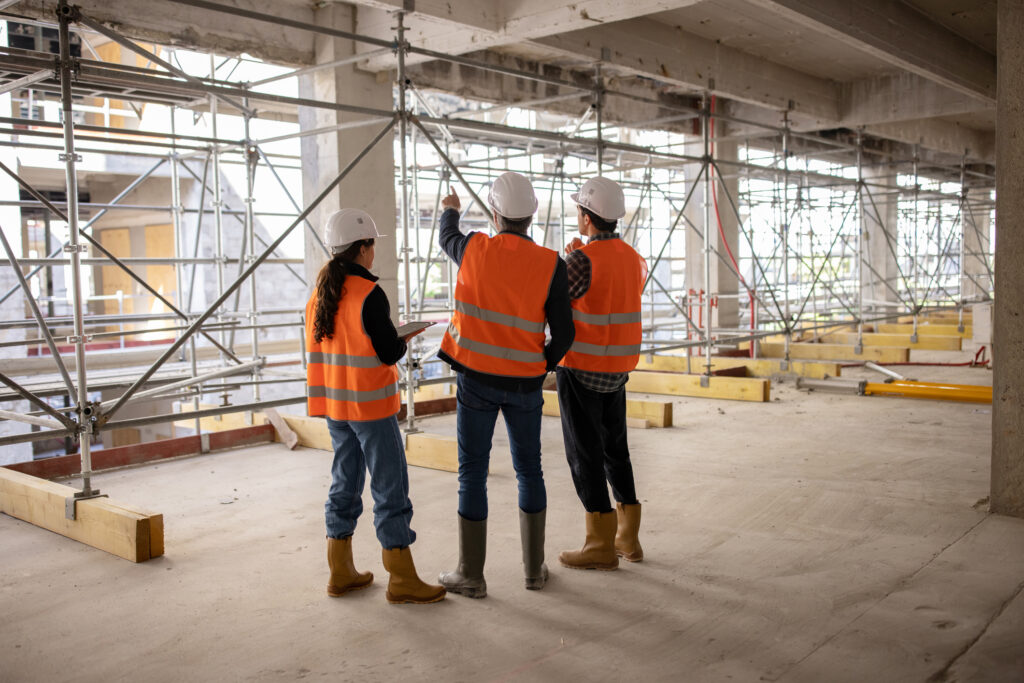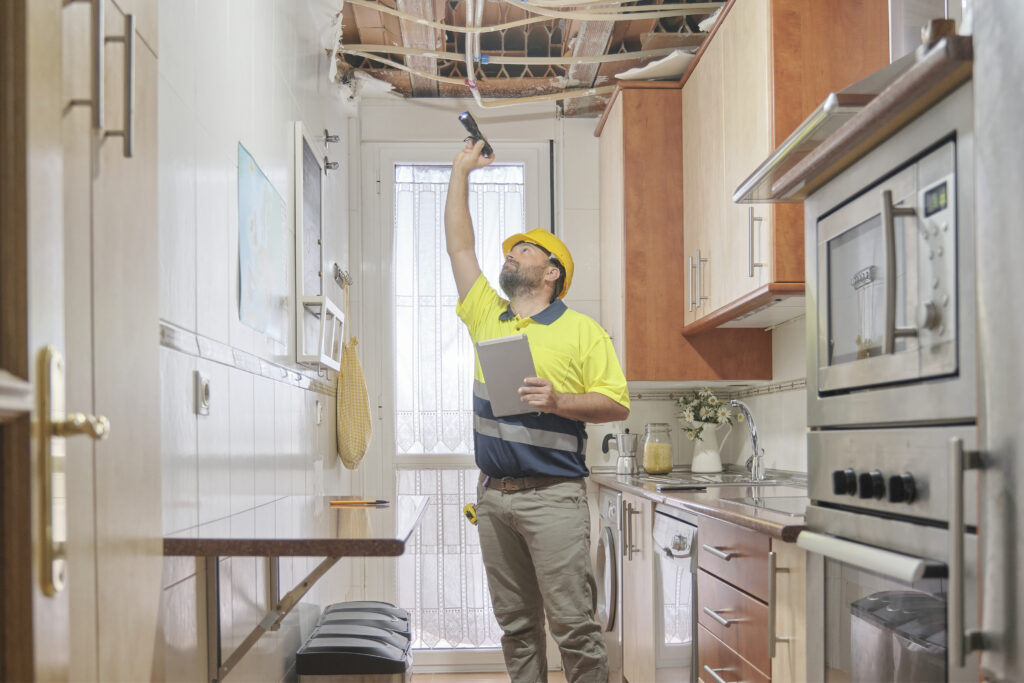
Bring on Building Safety: Code Enforcement Explained
Building safety codes and proper building code enforcement help to sustain safe, healthy living conditions for residents, businesses and communities.
Throughout the United States and around the world, people have sustained injuries, death and economic loss because of unsafe buildings and systems. These losses are successfully minimized through the application of, and ongoing enhancements to, building safety codes and standards and a regulatory system to administer them.
Building officials, inspectors, and other code professionals dedicate their lives to the critical work of building safety—a profession that remains widely misunderstood and often overlooked. Most people are unaware of the essential role these professionals play in enhancing quality of life by ensuring safe and healthy living conditions for residents, businesses and entire communities.
What is Building Code Enforcement?
Code officials play a major role in ensuring that all commercial, residential, public assembly and other buildings within a governmental jurisdiction are constructed in accordance with the provisions of the governing building code. Building code provisions address structural stability, fire safety, adequate means of egress (exits), sanitation, safe wiring and more. It is the code official’s responsibility to protect the public health, safety and welfare in relationship to the built environment through effective building code enforcement.
Explore nine essential skills to succeed in a building safety career here.

How Does the Building Code Enforcement Process Work?
In addition to these requirements, the code official also assists designers and builders by interpreting the code’s application to a particular construction situation; by explaining minimum requirements and answering questions; and by investigating and resolving complaints involving existing buildings and sites.
Read the top concerns that keep building safety professionals up at night here.
What Are the Duties of Building Code Officials?
The executive official in charge of the building department is known as the code official. The term “code official” is a catch-all name for a variety of duties. In small communities and rural areas, a single code official may be responsible for building inspections, plumbing inspections, fire prevention inspections, mechanical and electrical inspections, building and zoning administration, and the like. In larger metropolitan areas, each of these tasks may be performed by different specialized staff members.
What About Building Inspectors?

Federal, state and local governments employ various types of inspectors to make sure projects conform to government codes as well as to building specifications and model building codes. Architectural and engineering firms also hire inspectors to make sure workers complete the projects in accordance with codes and specifications. Inspectors may also work for small companies or large corporations.
No matter where they work, inspectors have similar tasks. They apply the principles and methods of construction to judge the work and decide whether it meets the applicable standards or codes. They make preliminary inspections during the first stages of the project. They also examine the supplies to be sure these materials meet the specifications, standards or codes called for.
Follow-up inspections are performed throughout construction to ensure compliance with regulations. In regions prone to floods, earthquakes or tornadoes, they may make frequent inspections to ensure that equipment, materials and installation meet special safety requirements. For some projects, various inspectors work together throughout the construction process to ensure that the project meets code requirements.
- Building inspectors review drawings and specifications for planned repairs of existing buildings, construction of new building projects, and building sites being considered for development. Before work begins, building inspectors investigate the construction site — checking drainage, elevation and the placement of buildings on the plot. Inspectors examine and approve floor framing, wall framing, roofs and ceilings, chimneys, and all other items that are part of the building structure. As each building phase is complete, inspections are required before the work can progress. When projects are completed, a comprehensive inspection is performed and a certificate of occupancy is issued by the building inspector.
- Government projects such as airports, highways, water and sewer systems, streets, bridges and dams are the responsibility of public works inspectors. They inspect digging and fill operations and the placement of forms for concrete. They observe the concrete mixing and pouring, asphalt paving and grading operations and keep records of all work performed and the materials used. Public works inspectors may be specialists in one kind of operation such as reinforced concrete, dredging or ditches.
- Electrical inspectors check the quality of materials, the installation work, and the safeguards in electrical systems. They make sure electrical systems meet city, state or national codes, and electrical codes and standards. Electrical inspectors look closely at new wiring and fixtures in businesses, public buildings, and in homes.
- Mechanical inspectors focus on heating, ventilating and air-conditioning (HVAC) concerns. This includes inspection of mechanical appliances and equipment; air distribution systems; kitchen exhaust equipment; boilers and water heaters; hydronic piping; gas piping systems; flammable and combustible liquid storage and piping systems; fireplaces, chimneys and vents; refrigeration systems; incinerators and crematories. The mechanical inspector also checks for air quality and energy conservation measures.
- Plumbing inspectors check for proper design and installation of plumbing systems, including sanitary and storm drainage systems, sanitary facilities, water supplies, and storm water and sewage disposal in buildings.
- The duties of a fire prevention inspector are usually performed by the local fire department or fire prevention bureau. Typically, fire inspectors check nonresidential buildings on an annual basis to ensure that appropriate fire safety practices are being followed.
- Property maintenance or housing inspectors inspect existing buildings to check for health or safety violations and the condition of the exterior property.
- The plan reviewer or examiner is usually the first person who begins the evaluation process which ensures that a building or structure conforms to the requirements of the local or specified code. The plan reviewer examines the construction documents used to describe a project, including architectural, structural, site plan, mechanical, plumbing, electrical and fire protection drawings as well as the corresponding specifications, structural design calculations and soil report. As these items are examined for building code compliance against a checklist of the code’s requirements, any deficiencies are cited along with the corresponding section number of the code. These deficiencies can then be resolved by revising the construction documents and a permit for the building construction to begin can be issued.
A plan reviewer must have a working knowledge of the code requirements used to evaluate the building or structure. The reviewer must be familiar with all construction documents produced by an architect/engineer to fully describe the project. Expertise is required in reading drawings and plans for basic construction techniques along with an understanding of engineering and architectural definitions and symbols. A background in architecture or engineering is beneficial but not necessary to conduct plan reviews.
Large architectural/engineering firms also retain plan review departments to evaluate a proposed project from the design/conceptual phase through the final ready-for-construction documents. Code-consulting businesses along with highly trained and expert staff at the International Code Council provide plan review services for organizations who do not have the necessary workforce to keep up with today’s fast-paced construction rate and the on-going renovations of existing buildings.
Explore more careers in building safety here.








